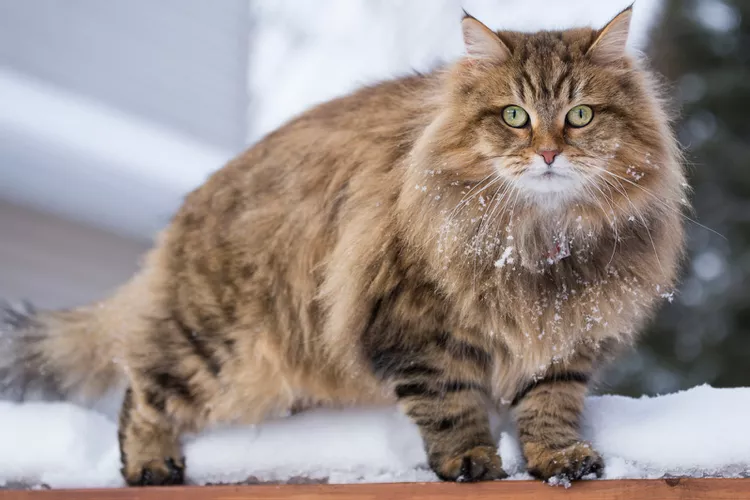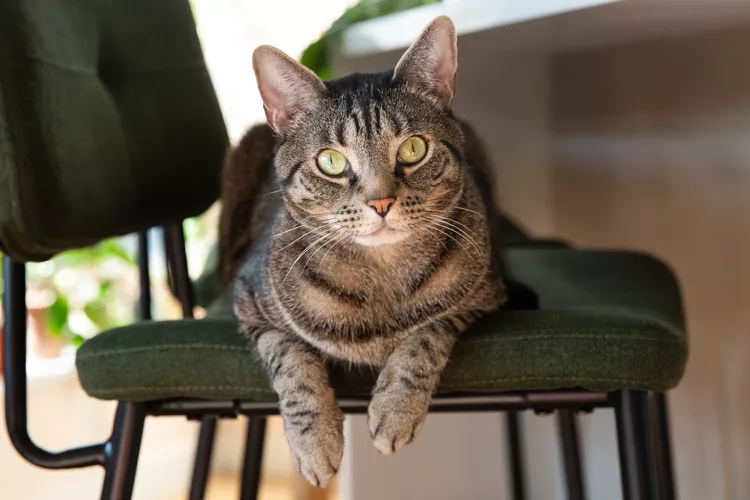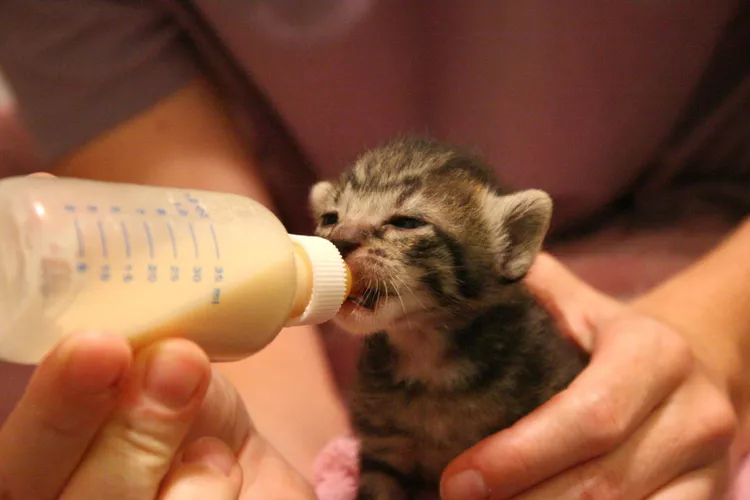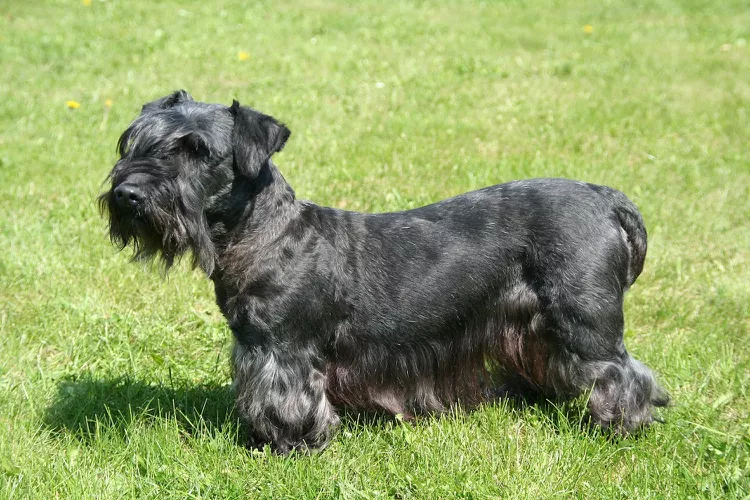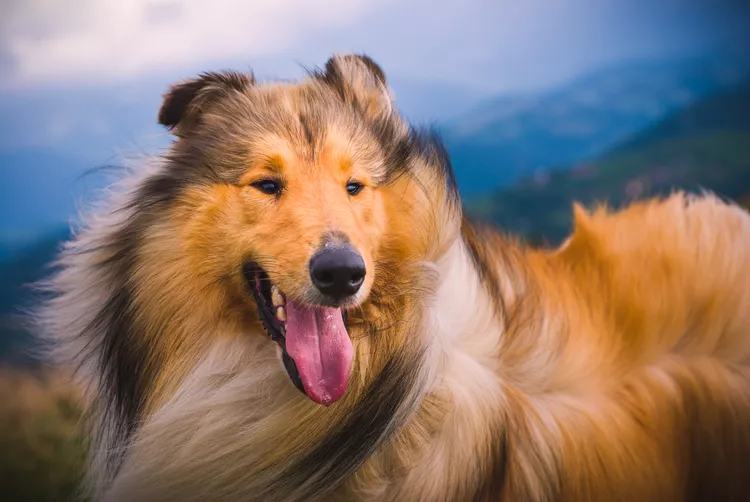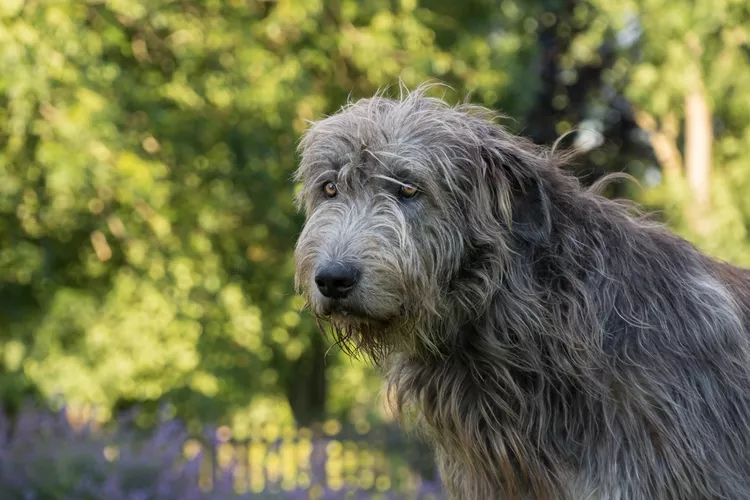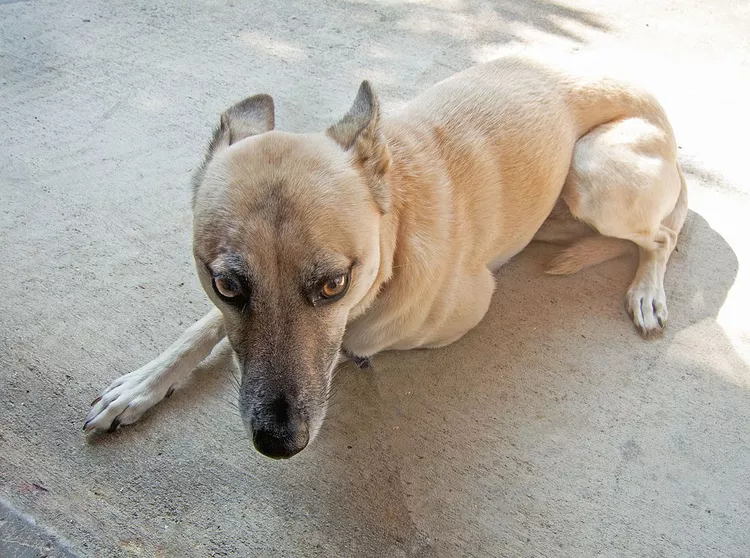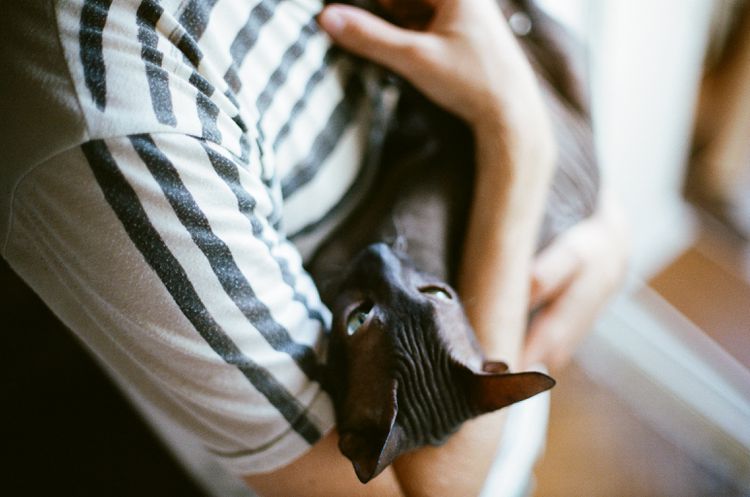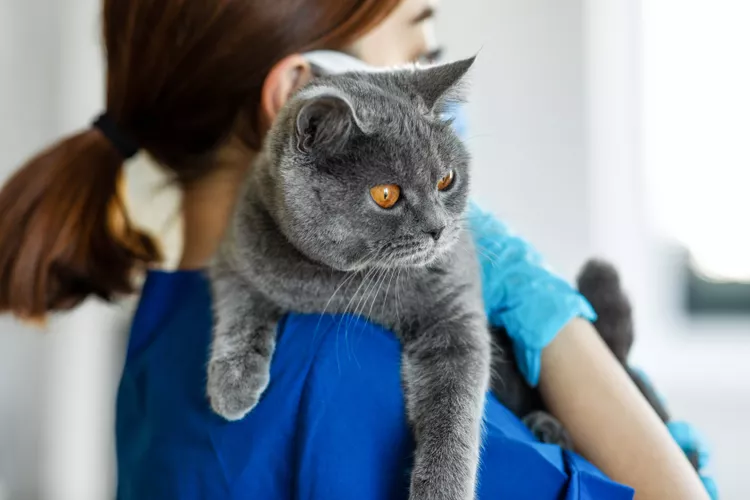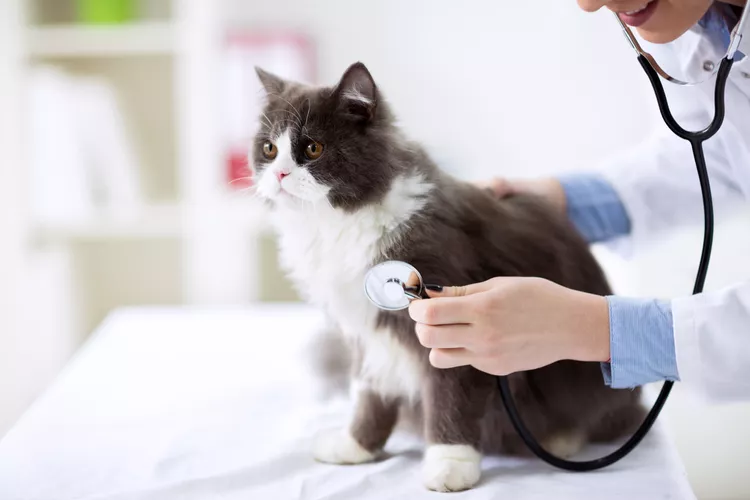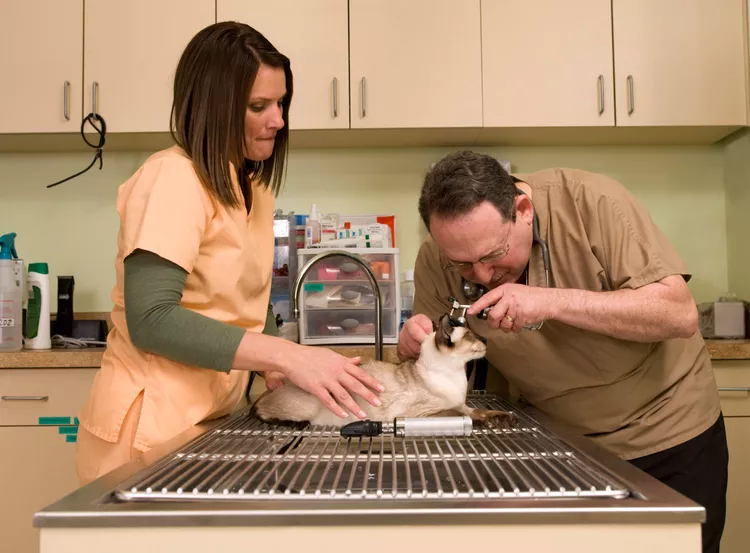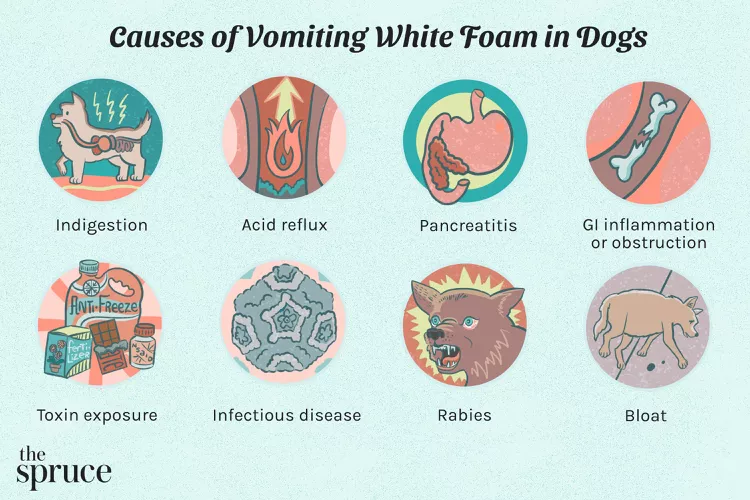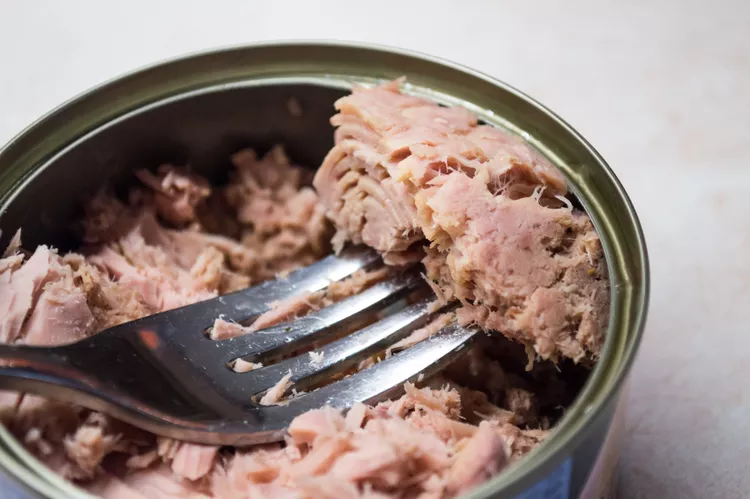The Siberian cat is an ancient, breathtaking breed that originated in Russia. A forest cat, Siberians sport luxurious triple coats to protect against the cold. These furry cats have an outgoing and affectionate personality, making them exceptional companions.
Learn more about the stunning and kind Siberian cat.
Breed Overview
Weight: 15 to 20 pounds
Length: 17 to 25 inches
Coat: Varies from coarse to soft; moderately long to longhaired triple coat with a full collar ruff
Coat Color: Any color combination or pattern
Eye Color: All colors
Life Expectancy: 10 to 18 years
Characteristics of the Siberian Cat
Here are the best characteristics of Siberian cats.
- Smart and athletic: This breed loves to climb, explore, and play. Be sure to keep your Siberian cat mentally stimulated and physically enriched.
- Friendly: Siberian cats get along with almost any pet or human, even children, but they do take 5 years to mature, so be prepared for kitten antics to last longer than they do in other breeds.
- Allergy-friendly: Most cat-allergic people are sensitive to a protein called FelD1, which is found in cats’ fur after they lick themselves. It seems that some cat breeds, including Siberians, produce less FelD1 than other cats.
History of the Siberian Cat
Siberian cats hail from their namesake region in Russia, where they have been cherished for thousands of years. While written history on the origins of Siberians is scant, centuries-old Russian fairy tales and children's books feature the cat.
Following one of the earliest English cat shows in the 1870s, Siberian cats were described in "Our Cats and All About Them," a 1889 book by cat expert Harrison Weir. The United States got their first glimpse of the Siberian cat after the Cold War thawed in the 1990s, and it was love at first sight. The Siberian cat is recognized by the Cat Fanciers’ Association and The International Cat Association.
Siberian Cat Care
When it comes to caring for a Siberian cat, make sure you've got no problem with cat hair. And then you can provide your cat with plenty of high up places to lounge.
Exercise
Siberian cats are happy to play with their toys and families, but they also love to leap. With powerful rear legs, they can jump incredibly high. Because of that, make sure you have cat trees and other high-up spots for your Siberian to lounge.
Grooming
Be prepared to find a decent amount of hair around your house when you bring home a Siberian. To curb an overwhelming amount of hair and discomfort, follow these grooming practices:
- Occasional brushing should do the trick, as the Siberian's coat resists matting. Just make sure to up the amount of brushing time during shedding season.
- Occasional baths will help loose hair come out and remove dust and dander from the coat. (Some Siberians actually enjoy water, so this might not be a tough task).
- Trim Siberians' nails regularly. Scratch posts are not a replacement for nail clippers.
- Ear cleaning: Regularly inspect your Siberian's ears for dirt and debris. Clean their ears if you find them dirty. Never stick a cotton swab or anything else down into the ear canal. If the ears look red or excessively dirty, schedule a checkup with your veterinarian.
Common Health Problems
Hypertrophic cardiomyopathy, a form of heart disease that causes thickening of the heart muscle, is more prevalent in certain breeds, including Siberians. Mutations of several cardiac genes have been identified in some cats with this disease, which suggests that genetics plays a role.
Responsible breeders screen their cats for this disease to avoid breeding affected cats and passing it along to future generations.
Appearance
The Siberian cat’s trademark sweet expression comes from their modified wedge head with rounded contours. They have moderately short muzzles with slight curvatures along with medium-to-large eyes that are almost round. They come in shades of green, gold, green-gold, or copper (white cats may have blue eyes or “odd eyes"—eyes that are two different colors).
The Siberian cat’s luxurious, thick coat may come in any color or pattern, with or without white markings. The triple coat is made up of three layers: a shorter, dense undercoat of downy hair (the hair closest to the skin); a layer of slightly longer “awn hair” in the middle, and an even longer outer coat layer (called “guard hair”).
These are solid cats, and their rear legs are slightly longer than the ones in the front. That enables the Siberian to be a powerful jumper.
Diet and Nutrition
Work with your veterinarian to choose the best food for your Siberian cat. Although dry food is convenient, canned food contains fewer carbs and has a lot of extra moisture. Most cats don’t drink enough water, which can affect their overall health, including their kidney health.
Feed measured amounts of food at scheduled times, two to three times a day. Don’t leave food out all day, as this can contribute to an overweight cat.
Where to Adopt or Buy a Siberian Cat
You may be able to find a purebred Siberian cat through a breeder in your area, but if you'd rather adopt from a rescue organization, check out:
Siberian Overview
A good breed for some allergy sufferers
Affectionate, playful, and energetic; gets along well with children and other animals
Can handle colder weather and likes water play
Long hair requires more grooming than other cats; sheds winter coat in warmer months
A little noisemaker who likes to mew, chirp, and trill a lot
More Cat Breeds and Further Research
If you’re intrigued by the Siberian cat and want to learn more, check out the Cat Fanciers’ Association’s Cat Breeder Referral Search to try to find a Siberian breeder near you, so you can ask more questions and meet some cats in person. You can also visit Cat Shows U.S. to find a cat show in your area. Cat shows are a great way to meet many different breeds and talk to breed aficionados to learn more.
If you like the Siberian cat, you might also like:
There are many cat breeds out there. With a little research, you can find the right one to bring home.
-
Is the Siberian cat a good pet?
Yes, the Siberian cat is a good pet for many reasons, especially thanks to the breed's affectionate and friendly personality.
-
Are Siberian cats low-maintenance?
Siberian cats are relatively low-maintenance pets. Just be sure to anticipate seasonal shedding and to invest in a good brush to keep your long-haired cat comfortable.
-
What is the difference between a Siberian cat and a Maine Coon?
Although they both have great personalities, key differences between the Siberian cat and Maine Coon are coat texture and size. Siberian cats tend to have a coarser coat while Maine Coon coats are more silky in texture. Additionally, Maine Coon cats are slightly bigger than Siberian cats; males can weigh over 20 pounds.
